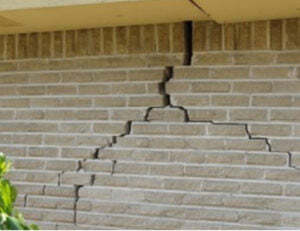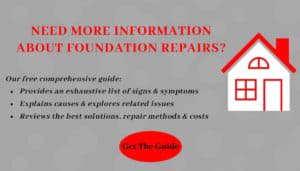If My Foundation is Good, Will You Provide a Written Statement?

When you are trying to sell your home, you may be asked to have the foundation assessed by a professional contractor. These recommendations are often made by home inspectors who have noted irregularities in the home, or realtors representing the potential home buyers.
This can be a frustrating request for all parties involved. At Acculevel, when our project advisors are asked to assess a home’s foundation, the expectation is that they will diagnose any issues and recommend the ideal repair options. If they do not see any actionable items, they do not provide an estimate. Acculevel is an ethical and reputable company, and we will not try to “sell” a solution to a non-existent problem.
We Do Not Document That a Foundation is “Good.”
When we inspect a home’s foundation, we may not find anything that requires our services. But if asked to provide a statement confirming that the “foundation is sound,” our project advisor is unable to do so. We understand that this may seem odd- maybe even unreasonable- but there are some very good reasons for this.
Limited Visibility
There are many factors that can prevent the project advisor from performing a complete analysis: weather, timing, site conditions, accessibility. If part of the basement is finished, we cannot check the inside walls or floor for potential issues. In some homes, the crawl space is too small to permit entry, or the ductwork blocks a section from inspection. This would also prevent a thorough check of the foundation.
Education
If you want a structure truly and fully assessed, you need to consult a structural engineer. They have the technical knowledge that is needed to determine if a building is sound or needs reinforcement. Acculevel is a foundation repair company; we are qualified to assess foundation problems and resolve them. We also sometimes need the expertise of an engineer for specific jobs.
As an example: we had a customer who wanted to build a second floor on their home, and needed to know if the existing foundation was strong enough to support it. A structural engineer evaluated the building and property, then recommended specific reinforcements that we then installed.
Business Model
Contractors like Acculevel are not paid for providing a professional opinion. In fact, we’re not paid for inspecting your foundation at all. Our estimates are free; we don’t generate any revenue by reviewing your home. If we find clear evidence of an issue that we can resolve for you and you hire us to do the work, that is when we are compensated for our expertise.
When a homeowner requests an estimate, one of the questions we ask is, “what problems have you experienced?” We review the house with those concerns in mind. Our goal is to determine if there is an issue and if there is, if it is one we can solve. If it is not something we can repair, we explain why and then recommend a more appropriate contractor to the homeowner. (For example, a brick foundation may require a masonry company.)
Insurance
Businesses carry insurance to protect them, just like individuals do, to protect them if they need help. Contractors, home inspectors, and structural engineers are no exception- they carry insurance to cover the services they provide. But they don’t all need the same kind of policy. Acculevel needs insurance to protect our employees on the job site, for example, because our installation crews operate tools and machinery while repairing someone else’s home.
Home inspectors, unlike contractors, are hired specifically to produce a report that covers all possible defects or issues within their scope of work. They are paid to inspect your foundation (and the rest of your home). Because of this, they need an insurance policy called ‘errors and omissions’ that will cover their expenses if they make a mistake and a homeowner files a complaint.
Conflict of Interest
Let’s say we charged a homeowner for a written statement that there is a problem with the home, then provided a bid to make those needed repairs. This is clearly self-serving, and generates a conflict of interest for us.
We are not qualified to vouch for the permanence or stability of your home, so we cannot produce any documentation that falsely claims otherwise. To do so would be unethical and make both our project advisor and Acculevel liable for what could be false assurances.
Do You Need A Structural Engineer?
You should consult a structural engineer when you need:
- To verify the stability or the structural integrity of the home.
- A report that determines if the structure is stable.
- A statement that no repair work is needed.
To find a qualified structural engineer, we recommend that you contact your state’s chapter of the Structural Engineer’s Association.
Have Questions about Your Foundation?
We have developed a guide for homeowners that answers all of the questions we regularly are asked by our own customers. The topics include what causes foundation damage, how problems can be resolved, what the best methods are for each situation, and will help you decide the best course of action for you and your home.
This is a document that we regularly update, so please bookmark it as a reference tool for you, any time you have questions!

